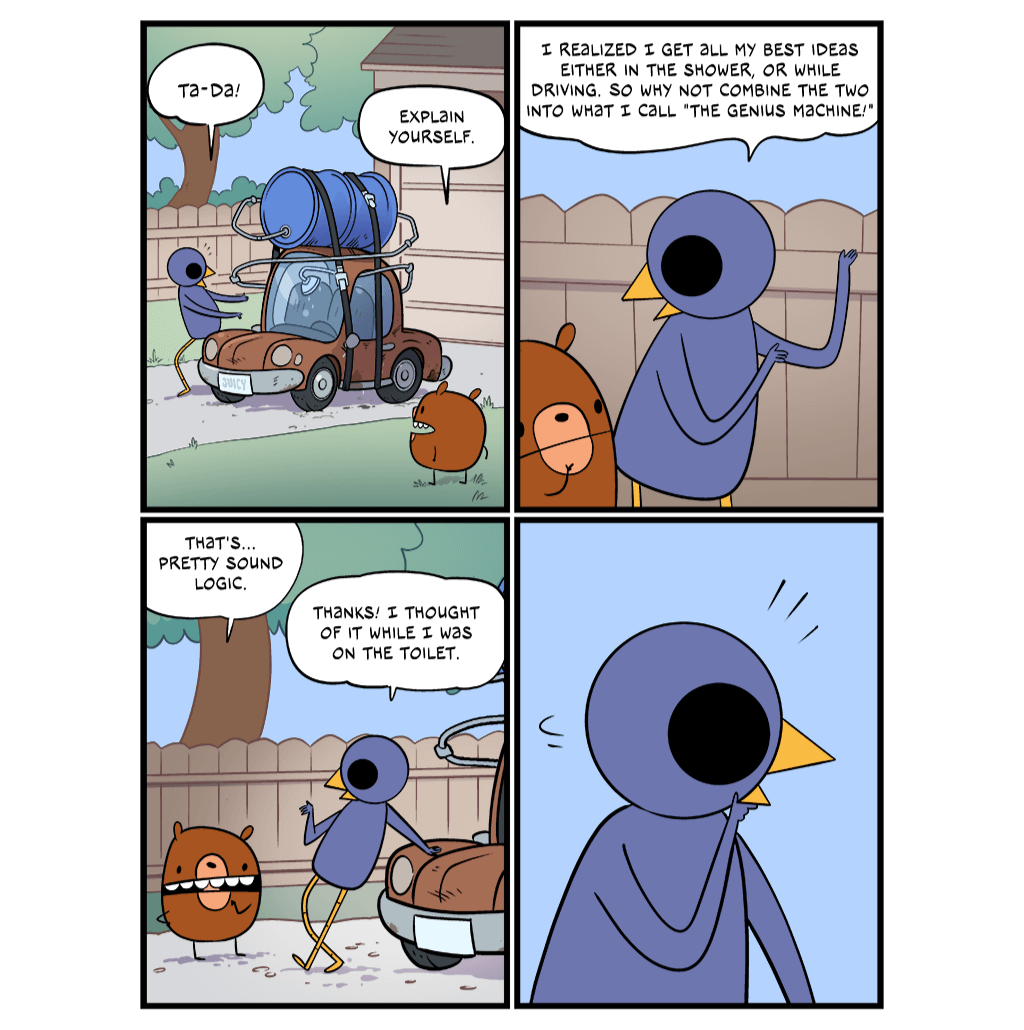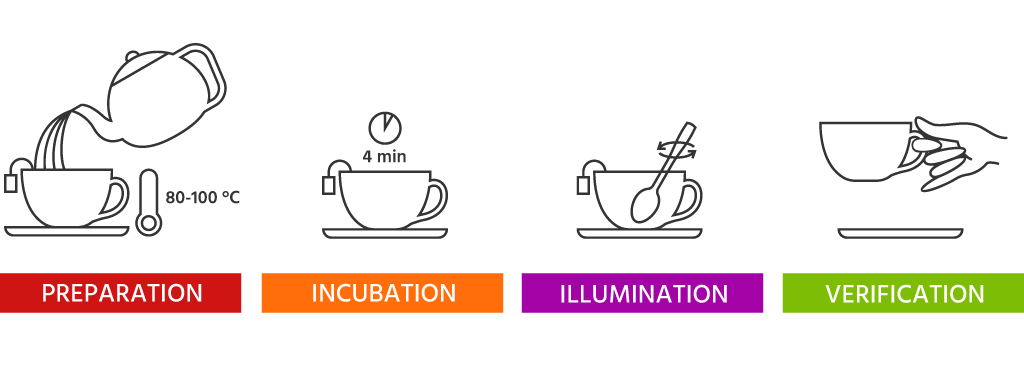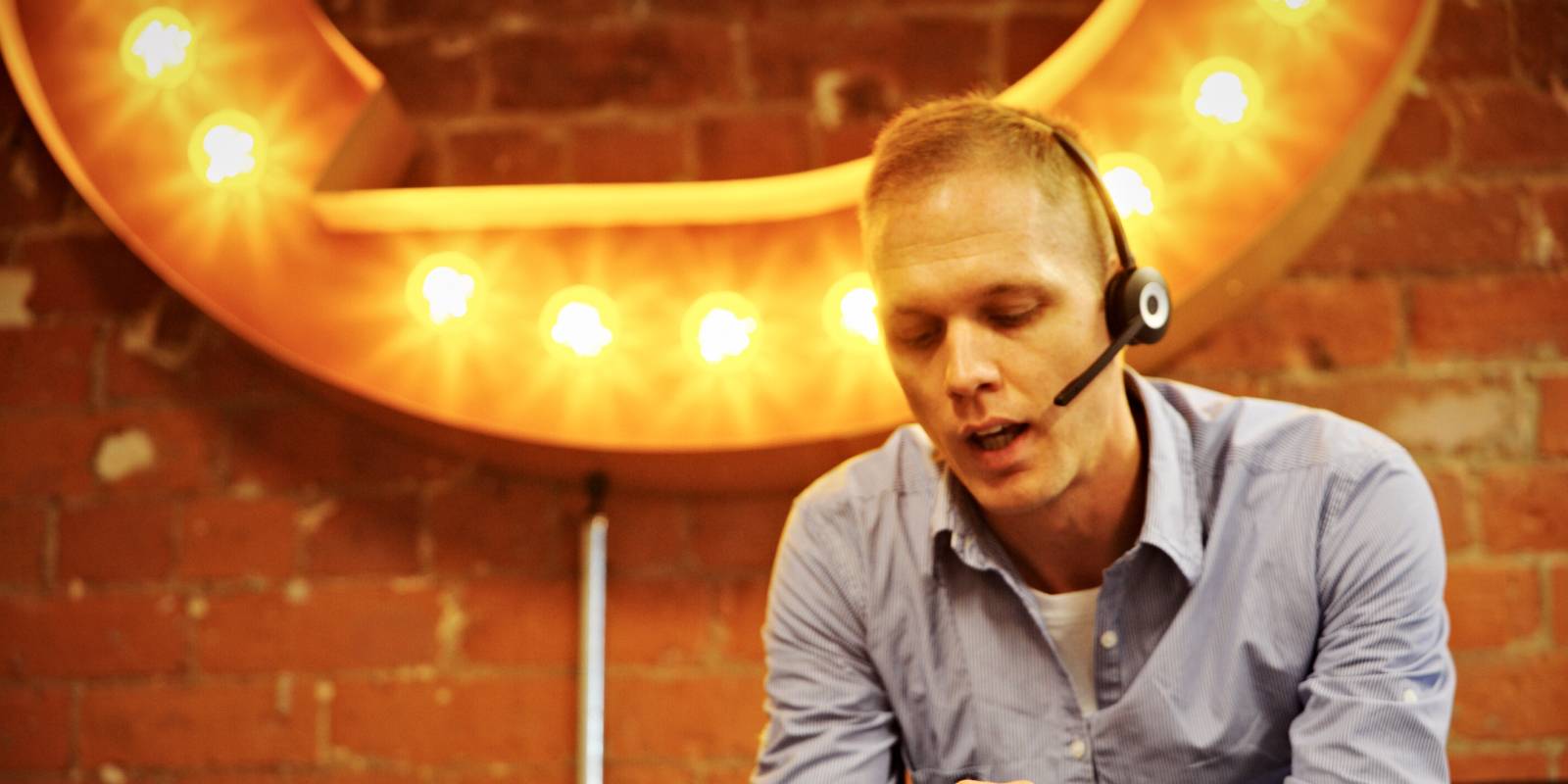Sometimes the best ideas come when you least expect them
July 4, 2018
Why is it that great ideas can surface while undertaking seemingly mundane daily tasks? Why do we often hear of ideas popping into the mind when showering, driving, washing the dishes or even sitting on the toilet? Some reasoning can be found in some research and observations of the creative process.

Image by Anthony Clark via nedroid.com
The Four Steps of Creativity
In 1926, London school of Economics co-founder and Social Psychologist Graham Wallas outlined in is book, ‘The Art of Thought’, that the creative process can be broken down into four stages. There are summarised as follows:
- Preparation
Define problem, research, collate… - Incubation
Step back, contemplate, give over the problem to your subconscious - Illumination
Insights, ideas come to being - Implementation (or verification)
Time to prove the ideas offer a viable solution to the problem.
In answering my questions from earlier, our main focus here will be on the incubation stage.
The Incubation Process
“Incubation means giving your thinking so far to your subconscious and then sitting back and waiting (or better, giving the conscious mind something useful to do.”
http://creatingminds.org/quotes/incubation.htm
Research into the incubation period suggest that the period of distraction with the mind focussed elsewhere and unconscious thought processes play a part in the development of ideas with the mind making connections between a seemingly unrelated actions or occurrences and the problem at hand.
The incubation process is the part of the creative process, that in the hurried business world, is most readily cast aside or ignored but is equally important and I believe we must strive to make room for when possible.
This is not magic trick, and there must be action and input to begin with. Without input there will be no output, there must be some preparation (Stage 1 of the creative process). There also needs to be the intent or interest. A bit of conscious effort and interest so that the subconscious attaches importance to the problem. Whenever I am tackling a complex or difficult design brief, when I’m fully engaged or interested in a project, I find in myself thinking about it in my spare time. It sits there in the back of my mind only to resurface in my thoughts when I least expect.

In a truly british manner, I’m going to use the analogy of making cup of tea. The Incubation period can be compared to the brewing – you’ve done the prep and bought the your tea brand/type of choice, let the water boil for optimal temperature, now you must combine those elements and let it brew. After all, that tea is going to taste pretty bad if you quickly draw it out after a few seconds.
The ideal brew time is apparently 4 minutes (some may argue). I don’t think we can take the analogy that far, and I won’t estimate how long the incubation period of the process must be, it could be an hour, it could be days dependent on the complexity and scale of the task. What is clear, is that it’s important to allow the opportunity in a design brief, to step away from the problem, distracting yourself with another task for a period of time before returning to the puzzle.

How to apply incubation
So what does this mean for us. How can we allow ourselves this distraction in our busy days and give our minds the room to breath. Here are some suggestions of how to incorporate the incubation stage of the creative process to our lives:
- Take a break, take a stroll in a relaxing and natural environment preferably, but even a 5 or 10 minute walk around the block could help
- Switch your environment, see the world (or office) from a different perspective
- Switch to another task for a period of time – it is suggested this be an undemanding task requiring less cognitive strain – such as reading, drawing, sorting or tidying up files
- Be good to yourself in your spare time, maybe try some meditation or similar relaxing activity to help your brain switch off/reset
- And finally, go and make yourself a cuppa, or even better, a round!
Got a learning problem to solve?
Get in touch to discover how we can help

